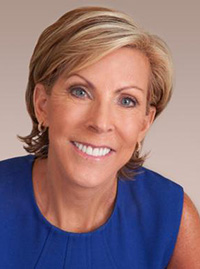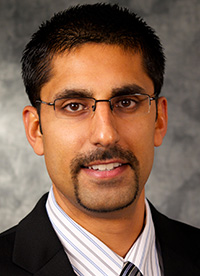Senate panel gets earful on data access

Eric Dishman made his way up to Capitol Hill on Wednesday to testify about just how critical – a matter of life or death – access to personal health information can be.
Dishman, Intel fellow and general manager of health and life sciences for the corporate giant, appeared before the Senate Committee on Health, Education, Labor and Pensions, HELP.
The hearing: Achieving the Promise of Health Information Technology: Improving Care through Patient Access to Their Records.
 Dishman, a member of the President's Precision Medicine Initiative Working Group, introduced himself as a "23-year cancer survivor, a cancer patient advocate and a lucky early prototype for the lifesaving potential of accessing one's own health data and genome-based precision medicine."
Dishman, a member of the President's Precision Medicine Initiative Working Group, introduced himself as a "23-year cancer survivor, a cancer patient advocate and a lucky early prototype for the lifesaving potential of accessing one's own health data and genome-based precision medicine."
"I have concluded that each of us must have better tools to participate in our own health and contribute to the wellbeing of others. Each of us needs access to our own health information that's convenient, timely, affordable, electronic and secure," Dishman told the committee chaired by Sen. Lamar Alexander, R-Tenn. "Each of us needs to work with our care teams to build care plans, with goals and accurate tracking. Each of us needs to own our health – but the healthcare systems needs to do a much better job of giving us the tools, data and responsibility to do so."
Dishman, well known in healthcare IT circles, is not a Johnny-come-lately to this mission. He has had skin in the game for a long time.
On Wednesday, he was one of three people testifying before the HELP Committee on a topic that has gained increasing force over the past few years – a patient's right to his or her health information.
[Related: How does your EHR stack up? See our 2015 satisfaction survey results.]
 Kathy Giusti, the founder and chairwoman of the Multiple Myeloma Research Foundation also testified. Giusti was diagnosed with the blood cancer in 1996 at the age of 37.
Kathy Giusti, the founder and chairwoman of the Multiple Myeloma Research Foundation also testified. Giusti was diagnosed with the blood cancer in 1996 at the age of 37.
"Myeloma … remains fatal," she told the committee. "In today's world, health IT can and should accelerate new treatments and cures."
Like Dishman, she called on healthcare providers to engage their patients and urged them to keep data open and available to them.
"Access to digital health information allows us to collaborate with our doctors and healthcare providers and make better decisions," she said. "We review our test results and lab reports online, and identify and act on important trends. We can learn at our own pace – when it is quiet and convenient – not when we are stressed in the doctor's office or in the infusion
room."
Giusti also stressed the importance of having one integrated patient record. She has six records scattered across healthcare organizations.
"That data must be integrated into a centralized portal that we as patients feel like we own, share, update and provide."
 Raj M. Ratwani, scientific director of the National Center for Human Factors in Healthcare at MedStar Health, delivered a plain message.
Raj M. Ratwani, scientific director of the National Center for Human Factors in Healthcare at MedStar Health, delivered a plain message.
"Patients must have easy access to their health information to improve health outcomes," he told the panel.
As he sees it, access is "a tremendous opportunity to improve care."
He tempered his optimism for access, however, with a caveat: "The usability of electronic health records, patient portals and personal health records remains subpar and is a significant challenge that we must overcome immediately."
Dishman, too, had something to say about design.
"As a cancer survivor and kidney transplant recipient, I collaborate on improving my health (and lowering my costs) together with my care teams, and I am very engaged in owning my own care," he noted. "At every step of the way in my health journey, access to my own health information has factored heavily in the difference between success and failure."
[See also: Intel's Eric Dishman needs a new kidney.]
As he sees it, Congress and the health sector should not be systems, and policies for him, "a fortunate, well-educated, well-compensated Intel executive who has connections with health experts all over the world."
"We should design policies, standards and economic incentives to promote individual access to personal health information for people who have none of my advantages," he told the panel.
"We need to design for people with big health needs but low health literacy, and then those systems will work well for everyone."
Watch the hearing or read the testimony here.
























